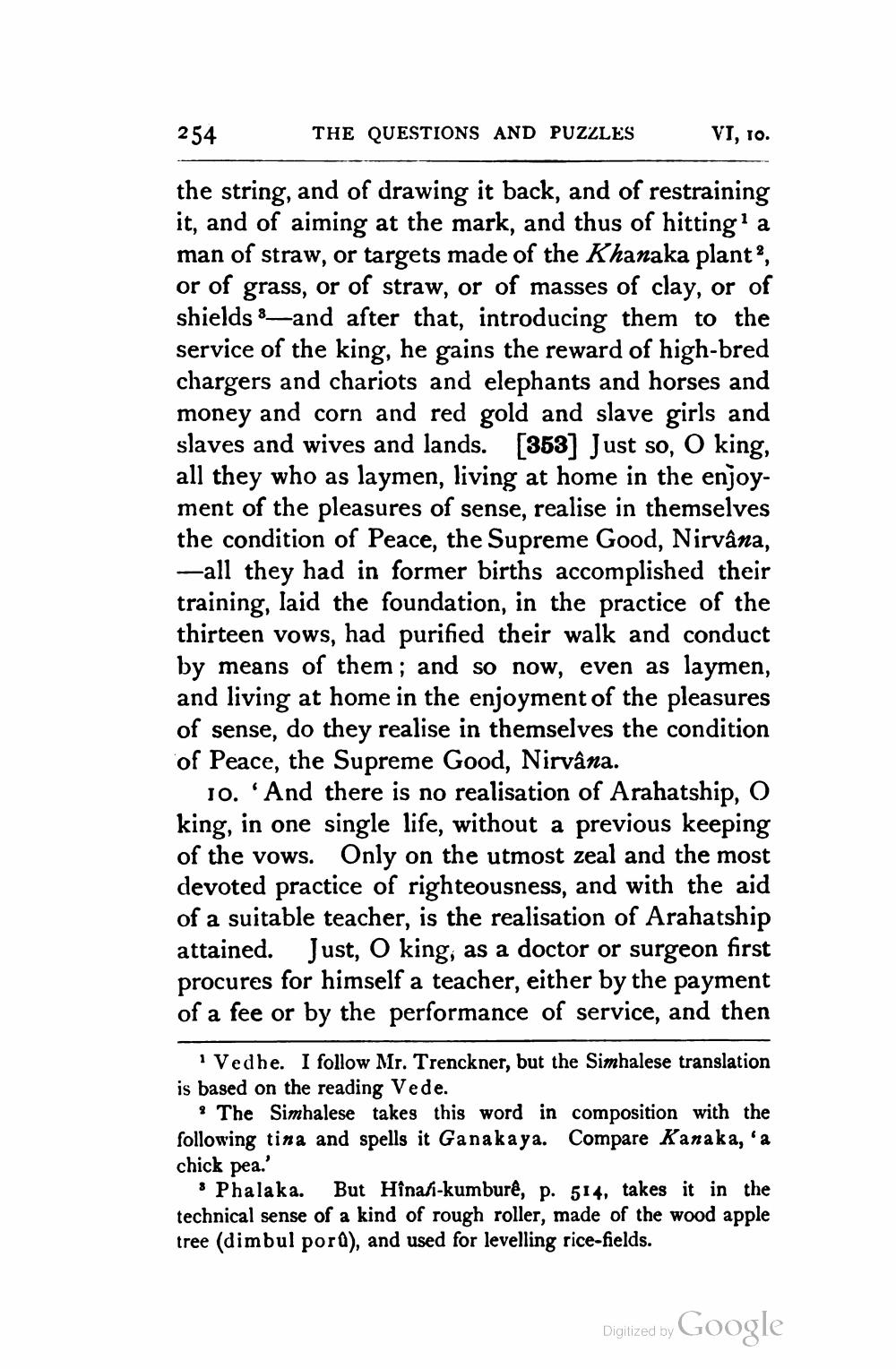________________
254
THE QUESTIONS AND PUZZLES
VI, TO.
the string, and of drawing it back, and of restraining it, and of aiming at the mark, and thus of hitting a man of straw, or targets made of the Khanaka planta, or of grass, or of straw, or of masses of clay, or of shields 8—and after that, introducing them to the service of the king, he gains the reward of high-bred chargers and chariots and elephants and horses and money and corn and red gold and slave girls and slaves and wives and lands. [353] Just so, O king, all they who as laymen, living at home in the enjoyment of the pleasures of sense, realise in themselves the condition of Peace, the Supreme Good, Nirvana,
-all they had in former births accomplished their training, laid the foundation, in the practice of the thirteen vows, had purified their walk and conduct by means of them; and so now, even as laymen, and living at home in the enjoyment of the pleasures of sense, do they realise in themselves the condition of Peace, the Supreme Good, Nirvana.
10. 'And there is no realisation of Arahatship, O king, in one single life, without a previous keeping of the vows. Only on the utmost zeal and the most devoted practice of righteousness, and with the aid of a suitable teacher, is the realisation of Arahatship attained. Just, О king; as a doctor or surgeon first procures for himself a teacher, either by the payment of a fee or by the performance of service, and then
i Vedhe. I follow Mr. Trenckner, but the Simhalese translation is based on the reading Vede.
The Simhalese takes this word in composition with the following tina and spells it Ganaka ya. Compare Kanaka, 'a chick pea.'
Phalaka. But Hînafi-kumburê, p. 514, takes it in the technical sense of a kind of rough roller, made of the wood apple tree (dimbul pord), and used for levelling rice-fields.
Digitized by
Digitized by Google




